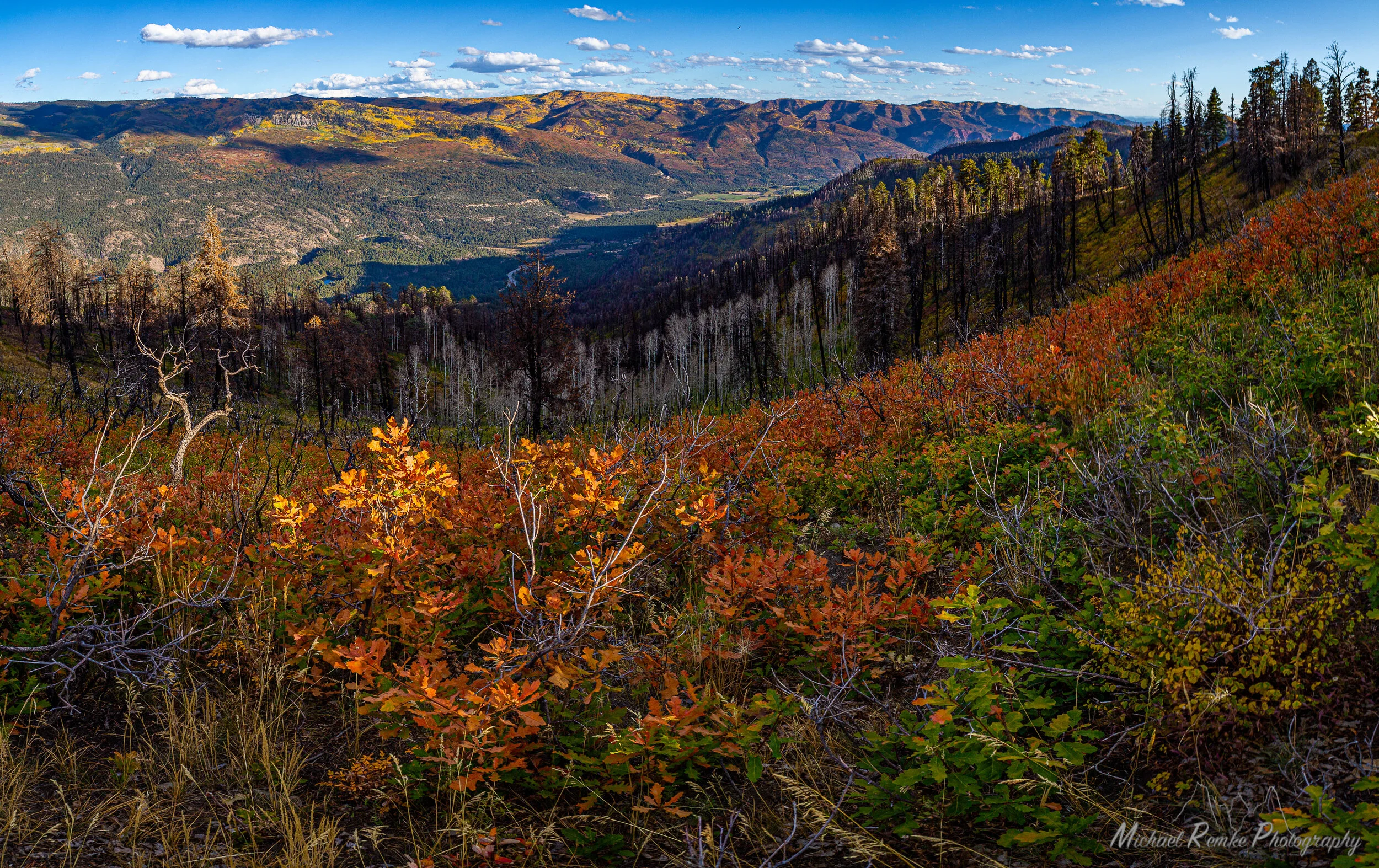LIVING WITH FIRE
Explore the fundamentals of fire ecology, its importance across our landscapes, and some of the strategies for mitigating risks with speakers Matt Tuten (USFS Silviculturist, San Juan National Forest) and Dr. Michael Remke (Forest Health Research Associate, Mountain Studies Institute).
Since 2017, the San Juan Mountains of Southwest Colorado have experienced exceptional drought and fire alongside record snowpack and swollen rivers. In response to community concerns regarding these climatic fluctuations across our landscape, MSI and partners began the Forest & Fire Learning Series in spring of 2018. For the past two years, this lecture series offered information and resources to how we, as a community, can better understand and approach local climatic changes using the best available science and landscape expertise to promote both ecological and community resilience.
While 2020 may provide adequate snowpack and spring runoff, there are many increasingly relevant conversations to address. One of these is the context of historical fire regimes – though 2020 may not prove to be an intense fire year, impacts from climate change suggest that fire events with increased frequency will occur. As our community continues to experience the fluctuations in climatic extremes alongside the consequences of more than a century of wildfire suppression throughout the West, we must discuss what it means to cultivate community resilience within the context of the forest ecology of the San Juan Mountains, historical fire regimes, and societal relationships to wildfire. Indeed, the relationships and responses people have to wildfire can be complex and multi-faceted, which is why MSI aims to include what varying areas of science, such as ecology, tourism, and sociology, have to say about fire, forests, communities, and resilience.
To continue exploring these ideas, MSI is preparing for its 3rd annual Forest & Fire Learning Series on it’s Facebook page with the intent to educate and engage our community in this time of social and physical distancing. The overarching theme of this series will be resilience: historical resilience to wildfire in our forests, management techniques used to improve ecosystem and community resilience, resilience and tourism, and the importance of building a culture that accepts living with wildfire. Each evening will offer two livestream presentations followed by Q&A from viewers in Facebook.





